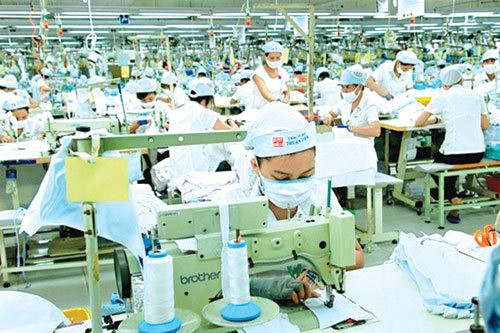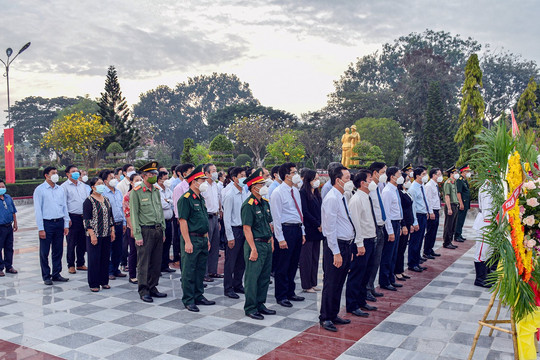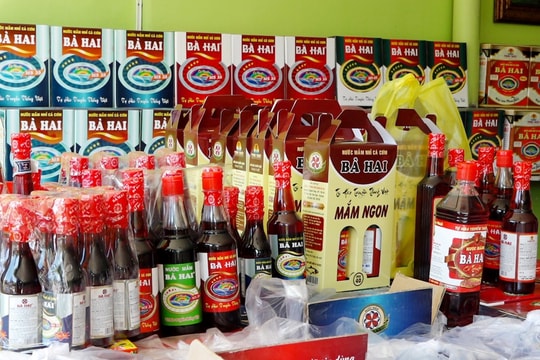Labor market status
It can be seen that the increasingly complex situation of the Covid-19 epidemic has affected the enterprises’ production and business, production facilities, and business households in the province. According to statistics from the Department of Labor, War Invalids and Social Affairs, in the past 10 months of 2021, the province has 514 enterprises temporarily suspended operations, 175 enterprises dissolved and thousands of business households have to suspend operations. In particular, the service sector, tourism, garment manufacturing, leather shoes, seafood processing, etc. are greatly affected by the Covid-19 epidemic. In the past time, although some enterprises and production facilities have made agreements with employees to suspend labor contracts and take unpaid leave (about 30,000 people), most of these workers are expected to get back to work when enterprises, production establishments, and business households re-operate. For workers outside the province in particular (this number is not much) also do not return to their hometown during the time of work stoppage or leave. Therefore, the province has basically no shortage of labor when it recovers after the Covid-19 epidemic.

For enterprises, foreign direct investment (FDI) sectors, industrial parks, and export processing zones, the province currently has about 4,200 enterprises with 85,000 employees. It is expected that by the end of 2021, about 80% of enterprises will have resumed operations/80,000 employees; In the first quarter of 2022, 100% of businesses recovered. Through the review of the Department of Labor, Invalids and Social Affairs at the Management Board of the Provincial Industrial Parks and the People's Committees of the districts, towns, and cities, the situation of enterprises in the province, enterprises in industrial zones, FDI enterprises and enterprises that use a lot of laborers during the recovery of production and business activities still maintain the existing number of employees. At the same time, there is a need to recruit additional workers (about 5,000 workers) but there is basically no shortage of labor supply.
Particularly for workers outside industrial parks, export processing zones, and freelance workers, the Covid-19 epidemic not only affects the formal sector, reducing the number of workers in this area but also spreading to the informal sector, causing the number of workers in this area to decrease. A large number of freelance workers lose their jobs and are likely to have to change careers. Through understanding the labor market information, the recruitment demand in the coming time will still focus on a number of industries and fields such as Textile and garment, footwear, tourism - restaurant - hotel, seafood processing, construction (estimated about 5,000 labor). Source of recruitment from the number of freelancers and the number of laborers working in Ho Chi Minh City, Binh Duong, and Dong Nai provinces returned to the province.
Basic solutions
Ms. Nguyen Thi Minh Tam - Director of the Department of Labour, Invalids and Social Affairs said: In order to recover and develop the labor market, in the coming time, the department will continue to well implement the policy to support employees and employers facing difficulties due to the Covid-19 pandemic according to the Government's resolutions and decisions. Proposals of the People's Committees of districts, towns, and cities are also aggregated to advise the Provincial People's Committee to report to the Standing Provincial Party Committee, Standing Provincial People's Council to consider and decide on additional subjects who are freelancers and other specific workers supported by local budgets. Along with that, the department continues to well implement the plan to deploy the Covid-19 vaccination campaign in 2021 - 2022 in the province. In which, workers in industrial parks, industrial clusters, concentrated production zones, enterprises with many employees, tourism establishments, fishermen, agricultural production facilities, transportation services, key industries Provincial efforts, etc are prioritized to ensure 100% completion by the end of 2021.
At the same time, the solution is focusing on investigating, surveying, and updating recruitment needs of enterprises after the socialization period according to Directive No. 15, Directive No. 16 of the Prime Minister. In addition, the Employment Service Center is directed to promote consulting, job introduction, and labor supply for businesses. Districts, towns, and cities have improved job transactions effectively. In addition, the Department has coordinated to well implement training, career change training, fostering labor resources, associated with improving the quality of human resources.
Moreover, surveys and provides vocational training according to the needs and subjects, meeting the requirements of the labor market and businesses linking vocational training with job creation for workers are organized by the department. The form of vocational training under training contracts between vocational education institutions and enterprises, production, business, and service establishments are also expanded. On the other hand, priority is given to loans to create jobs for rural youth to start up, farm projects, traditional craft villages, production, and business establishments with many occupations. The department continues the Central Government petition to supplement annual job creation funding for localities to deploy and lend labor programs and projects, including people whose agricultural land has been recovered.
Translated by Uyen Linh (Source: Binh Thuan Newspaper)





















.jpg)




.jpeg)

.jpeg)


.jpeg)


